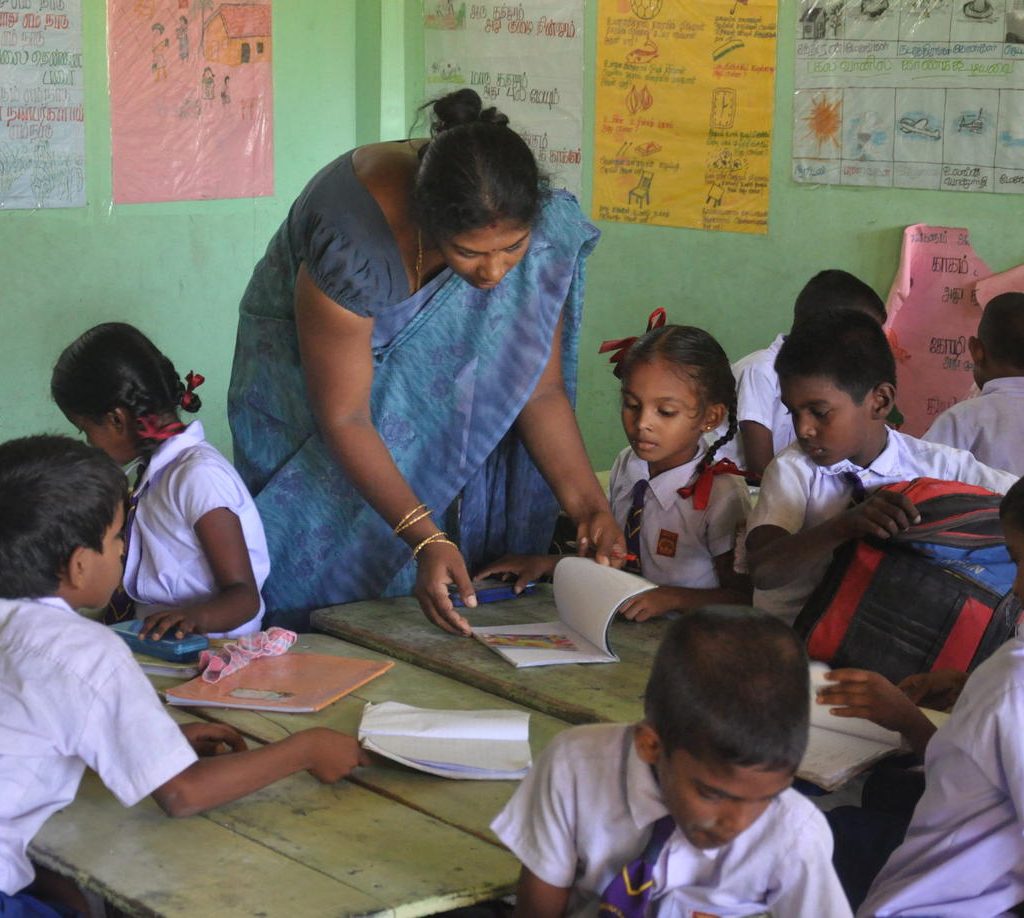Photo: Mrs Vijeraja has been teaching at a rural school in Batticaloa, Sri Lanka, over the last six years
There was a time when Mrs Vijeraja questioned her decision to take up a teaching post at Navakkadanamahal Vidyalayam, a rural school in Sri Lanka’s Batticaloa District. But that all changed after she attended ChildFund’s Child-Friendly Schools training.
“I have felt the change in myself after the training program,” she says.
Thanks to ChildFund’s Child-Friendly Schools program, Mrs Vijeraja’s teaching methods have been transformed. The training encourages teachers to think about new ways of teaching students – including the benefits of interactive and creative activities, such as debates, role-play, and the use of felt pens and board paper, and the importance of meeting the needs of slow learners – to make sure they don’t fall further behind.
“I found their teaching methods to be very effective,” she says.
“I used to be irritated and short tempered with students. They were often dirty and had body odour because they hadn’t bathed and wouldn’t wear shoes. In order to manage the chaotic classroom, I often raised my voice to be heard.
“But the training has helped me to see things differently – to control my frustration, have more empathy, and be more enthusiastic about what I do.”
Mrs Vijeraja is even happier to see positive changes in her students.

Photo: As a result of ChildFund’s Child-Friendly Schools training, Mrs Vijeraja is incredibly happy to see positive changes in her students, as well as in herself
They are more active and engaged, reading skills are improving, and there is growing leadership and interest in keeping the environment clean.
“I usually come to school early and am the first to pick up the broom and sweep the classroom. My students see this, and they now take initiative in tidying up the classroom and often beat me to it,” she says with a smile.
The performance of children in exams has also improved.
“When I started teaching at Navakkadanamahal Vidyalayam, no student had passed Sri Lanka’s Grade 5 Scholarship Exam in 20 years,” says Mrs Vijeraja.
“I was determined to work hard and ensure that at least 2-3 students made it through.”
After two years of hard work, two students passed the exam. The following year, four more students passed. For these children living in rural communities, it has given them the opportunity to attend prominent national schools – a milestone of which Mrs Vijeraja is extremely proud.
She says: “While sitting under a tree or a sheet of tarpaulin and teaching a class, I used to think we needed more infrastructure to improve our education. Now, I feel that it’s not just about the facilities, but the manner in which we teach that will foster creative and happy learning in children.”







